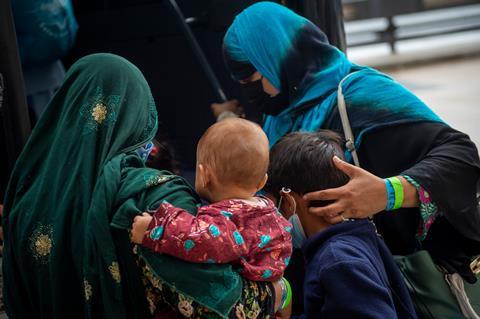Afghan citizens evacuated to the UK last summer are facing limbo as their interim immigration papers expire in the coming weeks, the Law Society of England and Wales said today as it urged the Home Office to take immediate action to provide evidence of the rights of people the UK promised to protect.
'Refugees and asylum seekers in the UK need valid immigration status to rent a home, open a bank account or find work and access NHS treatment free of charge,' Law Society president I. Stephanie Boyce said.
'The visa stamps given to people who arrived in the UK with Operation Pitting expire over the next few weeks. When Afghan evacuees arrived, the Home Office promised to work with them to secure their long-term UK immigration status within six months, but many still do not have the new papers they need to show they are in the UK legally when their six months are up. For people who were evacuated from Afghanistan in fear of their lives thisomission is deeply distressing.'

Solicitors have been seeking clarity from the Home Office for months, Boyce said, amid worries that if their clients become ‘overstayers’ they may face homelessness and destitution. Government advice for the cohort has not been updated since last September. Evacuees who are not staying in Home Office accommodation are particularly at risk.
'The Home Office must urgently provide every one of these people with evidence of their continued right to work, study and rent accommodation. While Afghans have been given verbal assurances by the Home Office that their leave to remain will continue, without anything to prove this people could mistakenly be made homeless, denied work or charged for NHS care.
'The UK’s “warm welcome” is meaningless if the government does not provide concrete assurances which could allay the fears of thousands of people and give them the legal certainty they need to begin to rebuild their lives in their new home country.’



























No comments yet